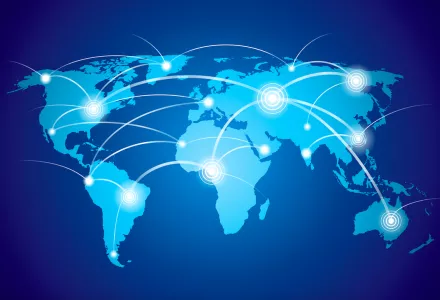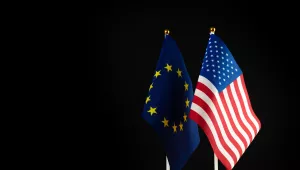Join the Project on Europe and the Transatlantic Relationship and the Asia Center for a roundtable about "The Transatlantic Alliance in an increasingly non “Atlantic” world".
When in August 1941 Winston Churchill and Delano Franklin Roosevelt signed the Atlantic Charter on board the USS Augusta they set the foundations for the mightiest alliance in human history. And while this document was the product of the intellectual heritage of the Anglo-Saxons it eventually become the backbone of transatlanticism encompassing most European states and North America. The Atlantic Charter became the epigrammatic declaration of unity of the West. Never again the orbits of geopolitics and values had so splendidly been aligned: Liberal democracies, tied by strong exchanges of trade and investments were united in a joint effort to contain the Soviet empire and protect the independence of Western Europe. To paraphrase Samuel Huntington, Transantlanticism during the cold war was strategically desirable, militarily feasible and politically possible. Yet new gravitational forces have now shattered this splendid alignment. The stellar recovery of China has shifted the economic epicenter from the Atlantic to the Pacific and already Europe is trading more with Asia than with the United States. With China’s colossal BRI spurring Eurasian connectivity Eurasian economic bonds will soon surpass transatlantic economic bonds by orders of magnitude. Germany – the pivotal state in Western Europe - already trades more with China than with the United States. For the first time since 1945 Europe’s economic prosperity will be tied to Asia while its values will be anchored in the populist – nativist shifting sands which is sweeping our Western polities. How this unprecedented dichotomy between commerce and creed is going to affect the West as China and the United States drastically securitize their bilateral relationship. How will the Transatlantic alliance evolve in an increasingly “non Atlantic” World? Will it remain strategically desirable, militarily feasible and politically possible?
Panelists:
Cathryn Clüver Ashbrook, Harvard University
Maria Adele Carrai, KU Leuven/Harvard University
Adam S. Posen, President, Peterson Institute (PIIE)
Meicen Sun, Massachusetts Institute of Technology
Torrey Taussig, Harvard University / Brookings Institute
Vasilis Trigkas, Tsinghua University.
----------
Co-sponsored by: Harvard University Asia Center and the Project on Europe and the Transatlantic Relationship, Harvard Kennedy School



